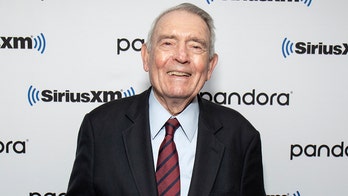Fox News host Jesse Watters highlights the security failures at Trump's rally, while Bill Maher and Bret Stephens discuss the dangerous rhetoric surrounding him.
In the wake of a second assassination attempt on former President Trump, a heated debate has erupted about the consequences of hostile rhetoric. Fox News host Jesse Watters has called attention to the security lapses at Trump's Butler, Pa. rally, while acclaimed comedian and HBO's "Real Time" host Bill Maher has weighed in on the matter.
Maher acknowledged that Trump has a valid point about the inflammatory language directed at him, but he stressed that Trump is "the worst person to make this case." According to Maher, Trump's own rhetoric contributes to the hostile environment, making him an unlikely advocate for addressing the issue.

Rhetoric Has Consequences: Maher and Stephens Debate Trump's Assassination Claims
New York Times columnist Bret Stephens concurred with Maher's assessment, labeling it "pot calling the kettle black." He argued that calling Trump a "threat to democracy" undermines the case against him, as it alienates his supporters.
Maher countered Stephens' argument, stating that the left cannot refrain from calling Trump a "threat to democracy" simply because he "benefits from it." He insisted that it is true and that suppressing the truth would be a disservice to the public.

Rhetoric Has Consequences: Maher and Stephens Debate Trump's Assassination Claims
Stephens maintained that the focus should be on policy issues rather than rhetoric. He emphasized that Trump's divisive presidency and policies have been harmful, but that framing the argument as an attack on democracy has backfired.
Maher dismissed Stephens' approach, arguing that Trump's refusal to concede elections is a fundamental threat to democracy. He stated that the media's treatment of Trump as a political outcast has only strengthened his appeal.

Rhetoric Has Consequences: Maher and Stephens Debate Trump's Assassination Claims
Stephens countered that Trump's supporters see the media's attacks as an attempt to silence him, which galvanizes their support. He urged for a more nuanced approach that focuses on specific policy failures rather than broad characterizations.
Maher, however, drew a distinction between the rhetoric employed by conservatives and liberals. He argued that the right makes false equivalencies between their criticisms of Democrats and the left's criticisms of Trump, who he believes poses a unique threat to democracy.

Rhetoric Has Consequences: Maher and Stephens Debate Trump's Assassination Claims
Despite the lack of a clear consensus, the debate highlights the complex and volatile nature of political rhetoric in the United States. The consequences of inflammatory language are undeniable, and the search for an appropriate balance between free speech and responsible discourse remains a pressing challenge.










